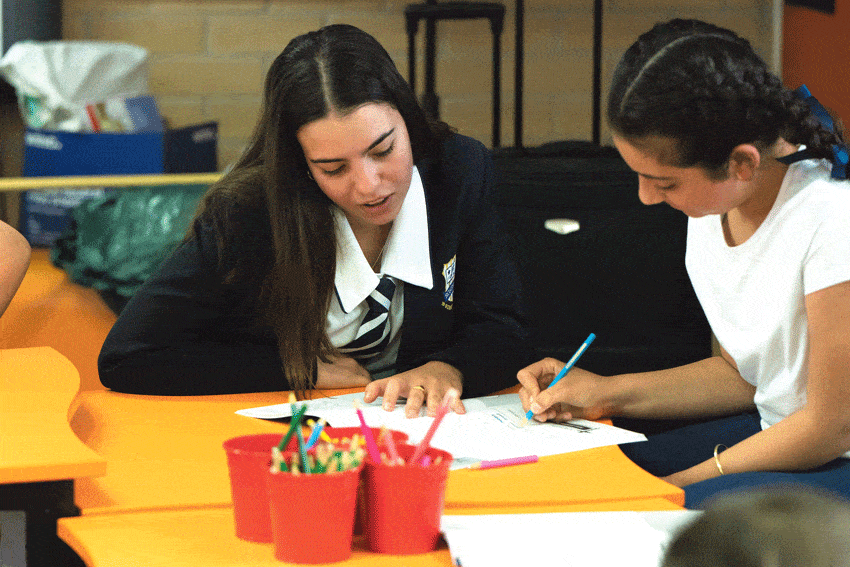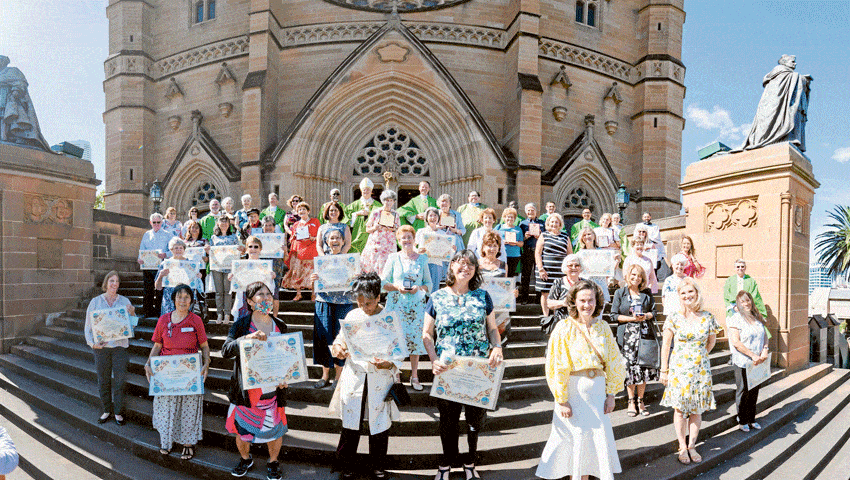
Pope announces scripture teachers as lay ministers
The Sydney Archdiocese has welcomed Pope Francis’ formal recognition of the ministry of catechists, officially announced this week.
The Vatican released the initiative highlighting the importance of selecting, training and supporting catechists, who are called to lead people to a deeper relationship with Jesus, prepare them to receive the sacraments and educate them in the teachings of the church.
Sydney Archbishop Anthony Fisher OP said it is an exciting development in the life of the Church and a fruit of the Second Vatican Council’s call for a broader range of lay ministries and the call of the recent popes to a ‘new evangelisation’.
“There is so much for catechists to do and so many gifts among our people to bring to this task,” he said.
At a time when more than 50 per cent of NSW Catholic school-aged students are enrolled in public schools, catechists are needed now more than ever.
“SRE is not just a subject, it’s a supportive Space for students that is about belonging” – Doug Mawhinney
Confraternity of Christian Doctrine (CCD) director Doug Mawhinney said the Pope’s new initiative is another formal recognition of the ongoing need for organised catechetical training of the state’s 5000 SRE catechists and for sacramental preparation catechists in parishes and religion teachers in Catholic schools.
He said with around 100,000 students in NSW public schools attending Catholic SRE classes, catechists are “messengers of hope offering students the opportunity to discuss and explore life’s bigger questions in a safe and supportive environment. At the request of parents, catechists are sent to gather children in Jesus’ name to learn to live the Our Father prayer with the help of the Holy Spirit”.
“SRE is not just a subject, it’s a supportive space for students that is about belonging. Catholic SRE is about being in relationship – to learn how to be present to God right now ‘to act justly, love tenderly and walk humbly’” he said. “Latest research tells us the top worry of students is worry itself, so these classes go a long way to building resilient and hope-filled students.
“With over 50 per cent of Catholic students attending public schools in Australia our catechists are needed now more than ever. The Catholic Conference of Religious Educators in State Schools (CCRESS) acknowledges the NSW-ACT Bishops’ support for the ‘other half’ of our families with children in public schools.

“Our Bishops have supported the Confraternity of Christian Doctrine (CCD) over the past 60 years so that parishes can provide SRE classes via CCD training ‘the 5000’ parish volunteers who are SRE Catechists currently in NSW.
“We look forward to growing this well-supported, professional structure that provides organised training and formation for SRE Catechists, who also serve as Children’s Liturgy, Sacramental Preparation, RCIA Catechists and youth leaders.”
Pope Francis’ apostolic letter “Antiquum Ministerium” (‘Ancient Ministry’), recognised the more than 3 million laypeople around the globe who volunteer as catechists and the vital role they play within the Church.
It highlighted that in many communities without a resident priest, catechists are the leaders of the local Catholic community, evangelising, convoking and guiding their fellow Catholics in prayer and works of charity.
In missionary territories under the guidance of the Congregation for the Evangelisation of Peoples, they also serve with a specific mandate from their bishop which could include preaching to non-Christians; catechising catechumens and those already baptised; leading community prayer especially at the Sunday liturgy in the absence of a priest; helping the sick and presiding at funerals; training other catechists in special centres or guiding volunteer catechists in their work; taking charge of pastoral initiatives and organising parish functions; helping the poor and working for human development and justice.
At meetings of the Synod of Bishops over the past 30 years, the Church leaders highlighted the important role of lay catechists in building and sustaining local Christian communities and called for more resources to be devoted to their training and support and for greater recognition and respect for their contributions.
Pope Francis’ decision to formally institute the ministry of catechist seems to be a response to those calls.
Related:
